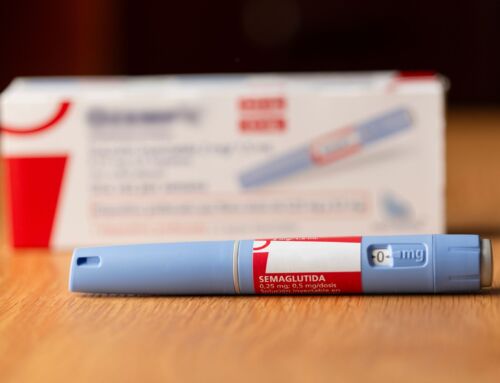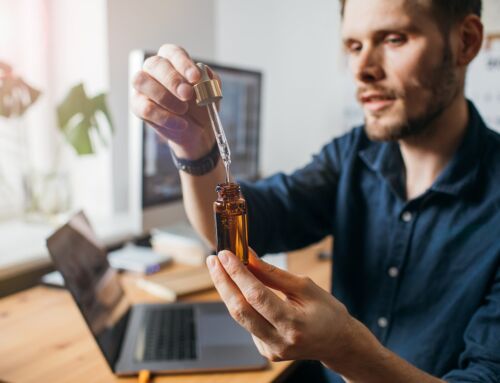Recently, Maryland Addiction Recovery Center entered into a partnership with Ashley Addiction Treatment to roll out a pilot Recovery Ready Workforce Program with the local business American Design and Build. The purpose of this new program is to offer addiction and mental health services to small and mid-sized businesses that often are unable to adequately deal with addiction and mental health issues in their workforce. While larger organizations and Fortune 500 companies often have large HR staffs or Employee Assistance Programs (EAPs) that are equipped to handle such issues, smaller businesses and many family-owned and operated businesses often do not have the employee bandwidth to appropriately aid their employees when those employees are dealing with issues of addiction, substance use disorder, co-occurring disorders, mental health issues, and mental illness.
Addiction in the workforce is not a new issue. Businesses, companies, and employers for decades have been dealing with issues of addiction and mental health. And just as America is dealing with the rise of an ongoing and everchanging addiction epidemic, many businesses are finding that they are also having to deal with rising rates of addiction and mental health issues in their workforce. Based on historical evidence, however, certain industries are typically hit harder by addiction and mental health issues of employees. These are industries and professionals with the highest rates of addiction in the workplace. They are listed in no particular order.
Food Service, Restaurant, and Hospitality
People that work in food service, restaurants, or the hospitality industry have a higher rate of substance use disorder than the general population. Different studies demonstrate rates between 16% and 19% of this industry deal with substance use disorder.
Healthcare Professionals
High demanding and high-stress professionals typically have higher rates of addiction in their workforce than other industries or the general population. Doctor, nurses and other health professionals certainly work in a field of high demand and high stress and demonstrate higher rates of substance misuse or substance abuse than other professions. Availability and accessibility to substances also play a role in healthcare professionals having higher rates of addiction.
Sales
Sales is a high demand job and often is associated with higher stress levels since their jobs and performances depend on their productivity. In several studies, it was also shown that individuals that go into roles as sales professionals enjoy the “rush” associated with working in sales. There is a connection between that and a propensity for addiction. Additionally, alcohol and drugs are often described as being a regular part of the lifestyle of those that work in sales. Individuals that work in sales have a higher rate of substance use disorder and mental health issues than other industries.
Construction Workers and Miners
Individuals that work in construction and mining demonstrate higher rates of addiction and mental health issues. Part of this may be from the high demand and stress of the job, and part of this may stem from the dangers of working in a field that often can result in regularly minor and many times major physical injuries.
Transportation and Logistics
Transportation, shipping, and logistics are industries that also demonstrate a higher percentage of employees that deal with addiction than other industries. Overall, studies have demonstrated that between 8.5% and 12% of employees that work in shipping, transportation, and logistics have had or currently deal with a substance use disorder, co-occurring disorder, or mental health disorder.
Attorneys, Lawyers, and Legal Professionals
Another high-stress profession is legal. Attorneys, lawyers, and other legal professionals have a higher rate of addiction, substance use disorder, and mental health issues than other occupations. Younger attorneys face much stress starting out in the field and also deal with a great amount of debt due to their education. A study revealed that 29% of lawyers in their first decade in the legal profession report issues with problematic drinking.
Arts and Entertainment Industry
People that work in the arts and entertainment industry (both artists like singers, actors, painters, but also executives and administrators that work in the field) are an occupation that has higher rates of addiction, substance use disorder, and mental health issues than other industries. Part of this may be the stress of the professional, some of it may be more “downtime” than other professionals, since these individuals often don’t work set schedules, and some studies demonstrate that part of this may be the association between creativity and substance use and substance misuse.
Emergency Service Professionals and First Responders (Police, Firefighters, EMTs, Military)
When we talk about stressful professions, there may be no more stressful profession than someone working in emergency services (police officers, firefighters, EMTs) or the military. Emergency service professionals, first responders, and military personnel deal with high-stress work environments every minute of every day. They deal with emergencies, life-threatening situations, and terrifying scenarios that most other people will never have to deal with in their lives. Trauma and PTSD are often associated with these professions and occupations. Therefore, professionals that work as first responders have a higher rate of addiction, substance use disorder and mental health issues than other fields. This includes both those actively working, on active duty, or retired.
Addiction and mental health issues impact every type of person throughout society and they do not discriminate. However, historically, certain professions and occupations, often due to the type of job or industry, have higher rates of addiction and mental health concerns. As an employer, or as an employee, it is important to know that your job or career, may place you at greater risk. Of course, addiction and mental health are not caused by a profession or industry, but a person with a propensity or disposition to deal with substance use disorder or addiction may find themselves at greater risk if they also work in one of these fields. Individuals need to know that help is available if they need it, and employers need to be prepared to aid their employees and their workforce in getting help for the chronic illness of addiction if their employees are in need.
If you or someone you know needs help for addiction or co-occurring disorder issues, please give us a call. Maryland Addiction Recovery Center offers the most comprehensive dual diagnosis addiction treatment in the Mid-Atlantic area. If we aren’t the best fit for you or your loved one, we will take the necessary time to work with you to find a treatment center or provider that better fits your needs. Please give us a call at (410) 773-0500 or email our team at info@marylandaddictionrecovery.com. For more information on all of our drug addiction, alcohol addiction and co-occurring disorder services and recovery resources, please visit our web site at marylandaddictionrecovery.com.

Table of Contents





